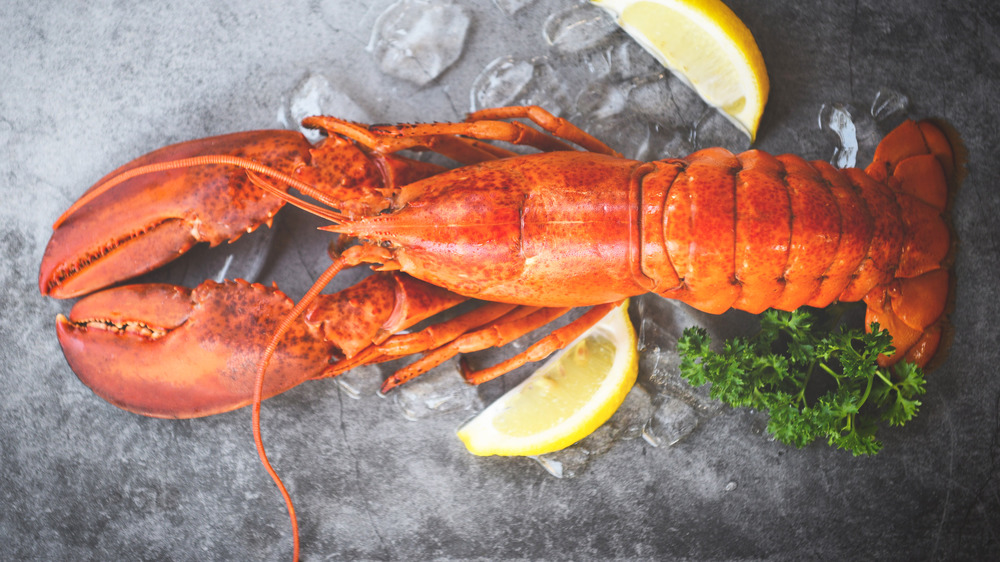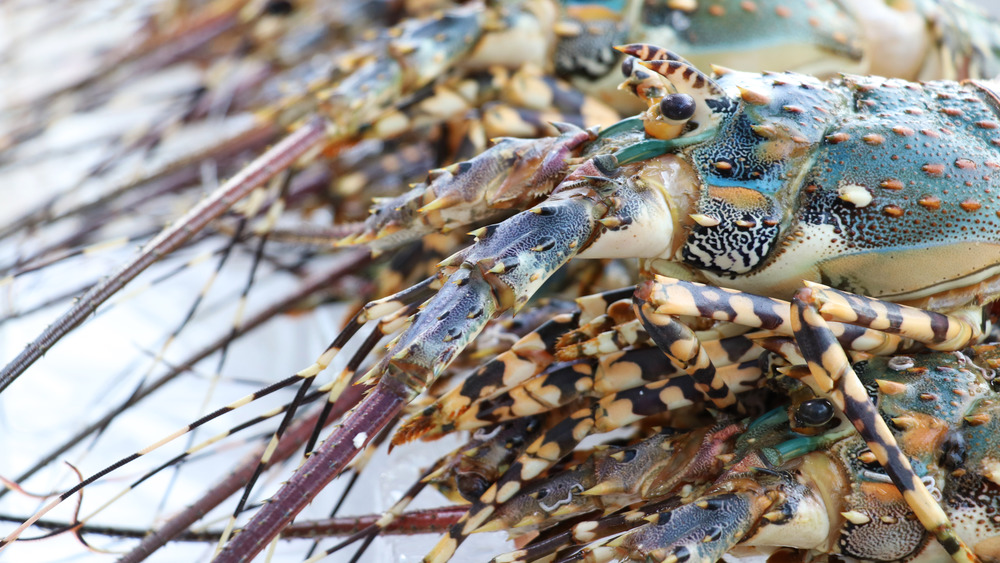Here's What You Need To Know About Canada's Lobster Wars
On Wednesday, October 14, 200 non-Indigenous men arrived at a lobster storage facility owned and protected by 30-odd members of the Sipekne'katik First Nation, a subdivision of Mi'kmaq First Nation in Nova Scotia. As The Star reported, this occurred the day after someone had damaged the water filtration system and another mob had trapped a Sipekne'katik fisherman in a separate lobster facility. CTV News later reported that one of the lobster pounds assaulted during the initial flare-up was later burned to the ground.
The conflict began on September 17 when the First Nation began to operate its "modest livelihood" fishing practices outside of the federally regulated season. The non-Indigenous fishermen claimed this would threaten their own livelihoods.
The First Nation has a right to fish when they want, due, as The Globe and Mail explained, to treaties signed with the British Empire in the 18th century. This decision was upheld in the 1999 Supreme Court case R v Marshall Jr., which declared that the Mi'kmaq's right to a moderate livelihood cannot be regulated under the conditions of the treaty.
Because of this legal understanding, critics have claimed that these off-season fishing ventures would prove unsustainable. To this, Megan Bailey, professor at Dalhousie University's Marine Affairs program and fisheries expert, said to The Globe and Mail that the scale of the Mi'kmaq fishing operation is about equivalent to a thousandth of what commercial fishing pursues every day between November and May. Clearly, the problem extends beyond valid commercial or environmental concerns.
Consider your lobster's source
Usually, that's as far as First Nation issues in Canada tend to go. This time, however, the topic spread across social media, inspiring people to join a lobster boycott. Among the boycotters is Chef Chuck Hughes, known for beating Bobby Flay in Iron Chef with his lobster poutine in 2011. "I want to be able to serve it proudly," he told Food and Wine, "but until things resolve I can't do that. I took it off the menu to shine a light on what's happening." Of course, with the pandemic happening, it's difficult to see how effective the boycott really is, as few people will splurge on restaurant-grade lobster. Still, the act matters.
In a more concrete move, however, CBC announced on November 9 that a partnership between Premium Brands of British Columbia and a coalition of Mi'kmaq First Nations will buy Clearwater, North America's largest producer of shellfish and holder of all offshore fishing licenses. Per the report, the Sipekne'katik have shown interest in joining the compact.
The Mi'kmaq insist that the Clearwater deal will not alter their plans to continue with their fishing. However, by purchasing the largest producer of shellfish, they have made themselves the prime customers of the non-Indigenous fishermen who attempted to bully both them and their license holders. While, as Eater points out, the non-Indigenous fishermen may shift their complaint to one of Clearwater's monopolistic hold on the fishing industry, the deal places the Mi'kmaq in a near-unassaible position.

